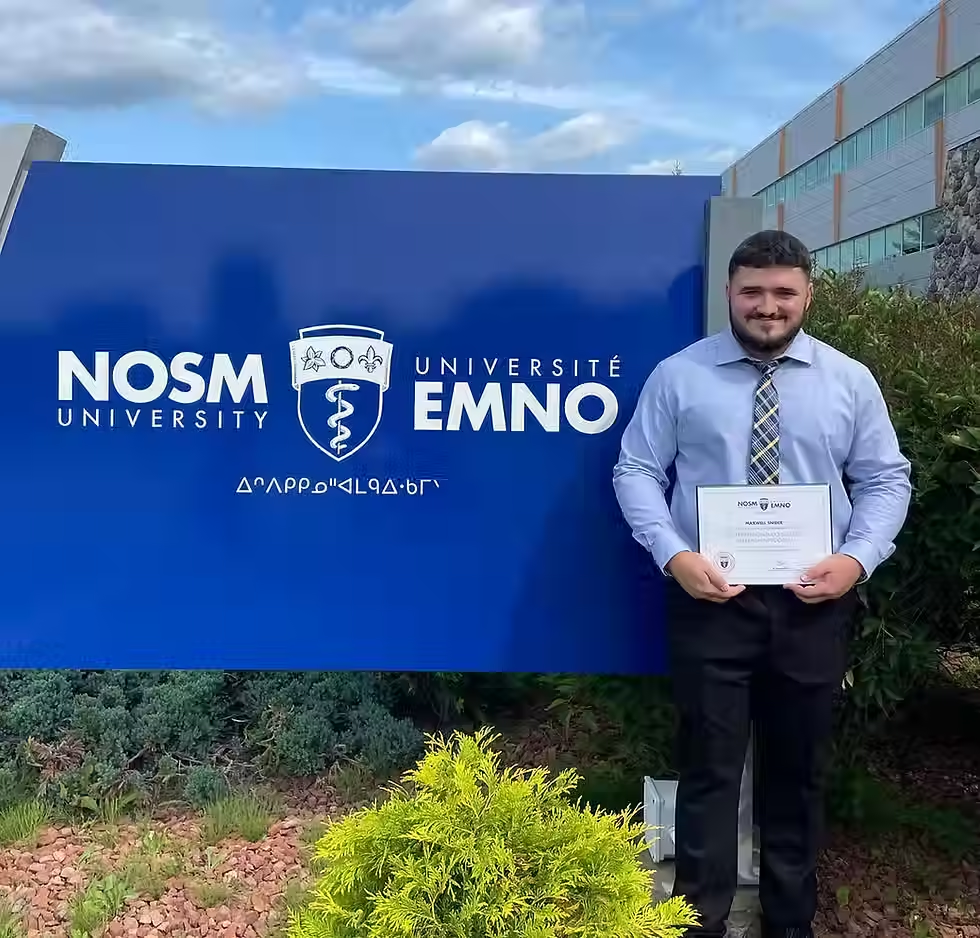The Benefits of Working With a Dietitian in Ontario vs A Nutritionist
- Maxwell Snider, RD

- Jul 7
- 3 min read
Updated: Sep 16
You hear words like "nutritionist", "nutrition expert", or "dietitian," but what do they really mean?
Contrary to popular belief, they are not all the same thing. One will feed you to the best version of you, and the other may give you misinformation and damage your health.

The Problem With The "Nutritionist" Title
"Nutritionist" is not a protected title in Ontario.
Meaning that, anyone can claim to be a nutritionist in Ontario. Even if they don't have any nutrition education.
Some nutritionists you meet will know a lot about nutrition becasue they went out of their way to become educated on their own. But many nutritionists don't have an understanding of nutrition outside of the information, and potentially misinformation, they see on social media.
But again, don't get me wrong.
There are so many awesome nutritionists out there, but because anyone can claim they are a nutritionist, it's impossible to know which ones will be able to help you using an evidence-based approach.
What Makes Dietitians Different?
Unlike "nutritionist", the title of a Registered Dietitian (RD) is a protected title. This means there are certain requirements that you need to have to use it. If you haven't completed these requirements, you risk getting a hefty fine.
What Does It Take To Earn The RD Title?
Completion of an accredited 4-year undergraduate degree in nutrition with a specialization in dietetics
Completion of a postgraduate program involving a research project
Completion of supervised practice hours by an experienced dietitian
Passing a National written exam to prove knowledge and expertise in the area of nutrition and dietetics
Proof of ongoing education every year
Education, Regulation, and Trust
Anyone who has the title registered dietitian (RD) beside their name has gone through extensive education, has read and conducted research, and has practical experience.
Being a dietitian also means that you are regulated by a college. For me, it's the College of Dietitians of Canada and the College of Dietitians Ontario.
What this means is that if you have a bad experience with a dietitian or feel like they are giving out misinformation, you can report them to the College of Dietitians, who will then follow up regarding your complaint.
Because of this level of education and regulation, dietitian services are often covered by private insurance providers, making the services dietitians provide free to anyone with coverage.
In summary, dietitians are tested before they can use the title, which makes it easy to trust the information they share.
At a Glance: Ontario Dietitian vs Nutritionist?
Final Thoughts: Who Should You Trust?
I'm biased, but I think the breakdown speaks for itself.
If you want a guarantee that the person you are talking to knows a lot about nutrition, can treat a medical condition you have, and is covered by your insurance plan, a dietitian is going to be the way to go.
But if you know a nutritionist that you trust, that's a great option too.
Looking for an RD title just helps establish trust and provides you with reassurance that you're getting the information you need to know.
Finding who to trust on the internet can be tough, so I always push people towards Registered Dietitians identified by the RD beside their name.
It's not a foolproof system, but it's better than gambling with a nutritionist.
To learn more about my services...


Comments